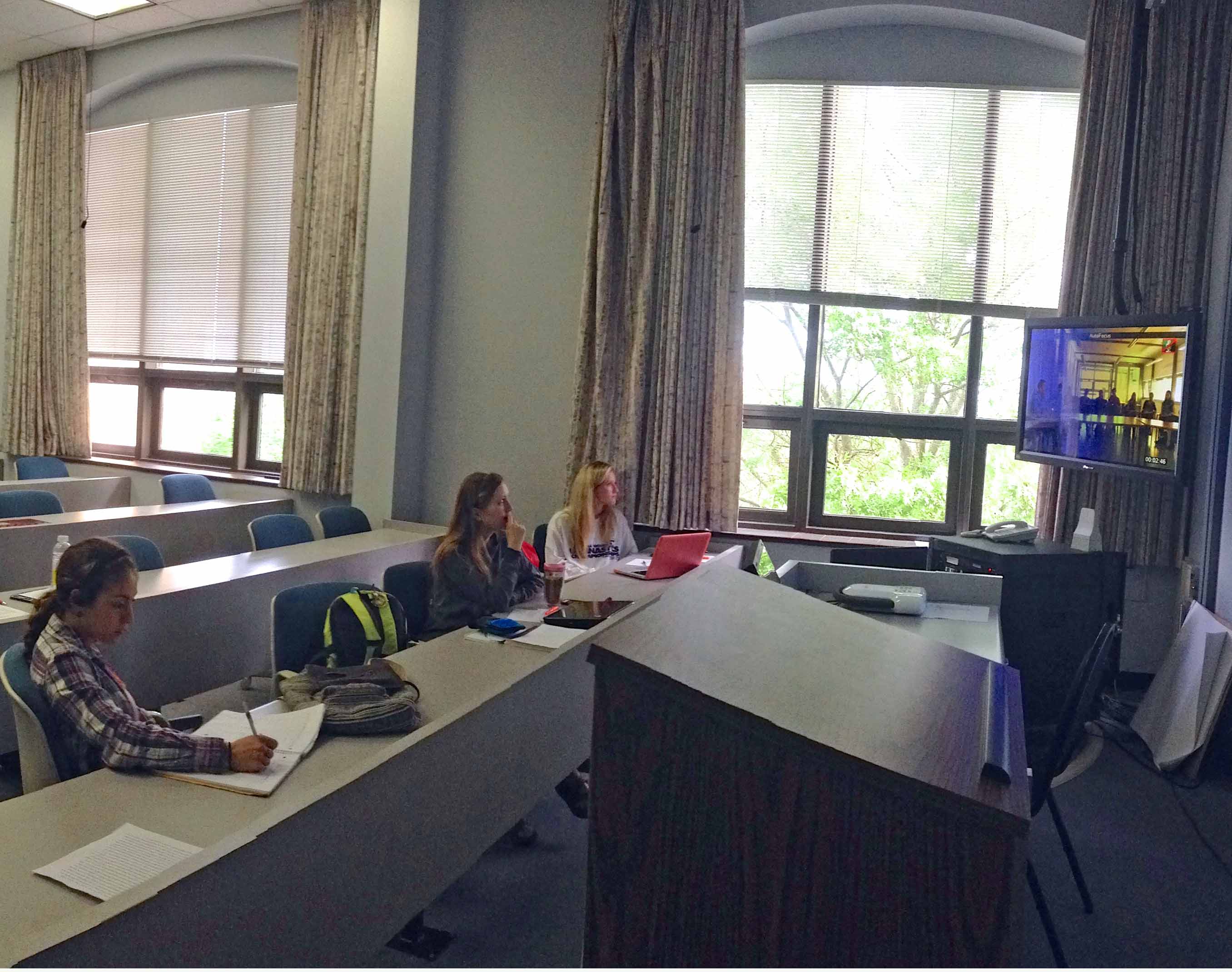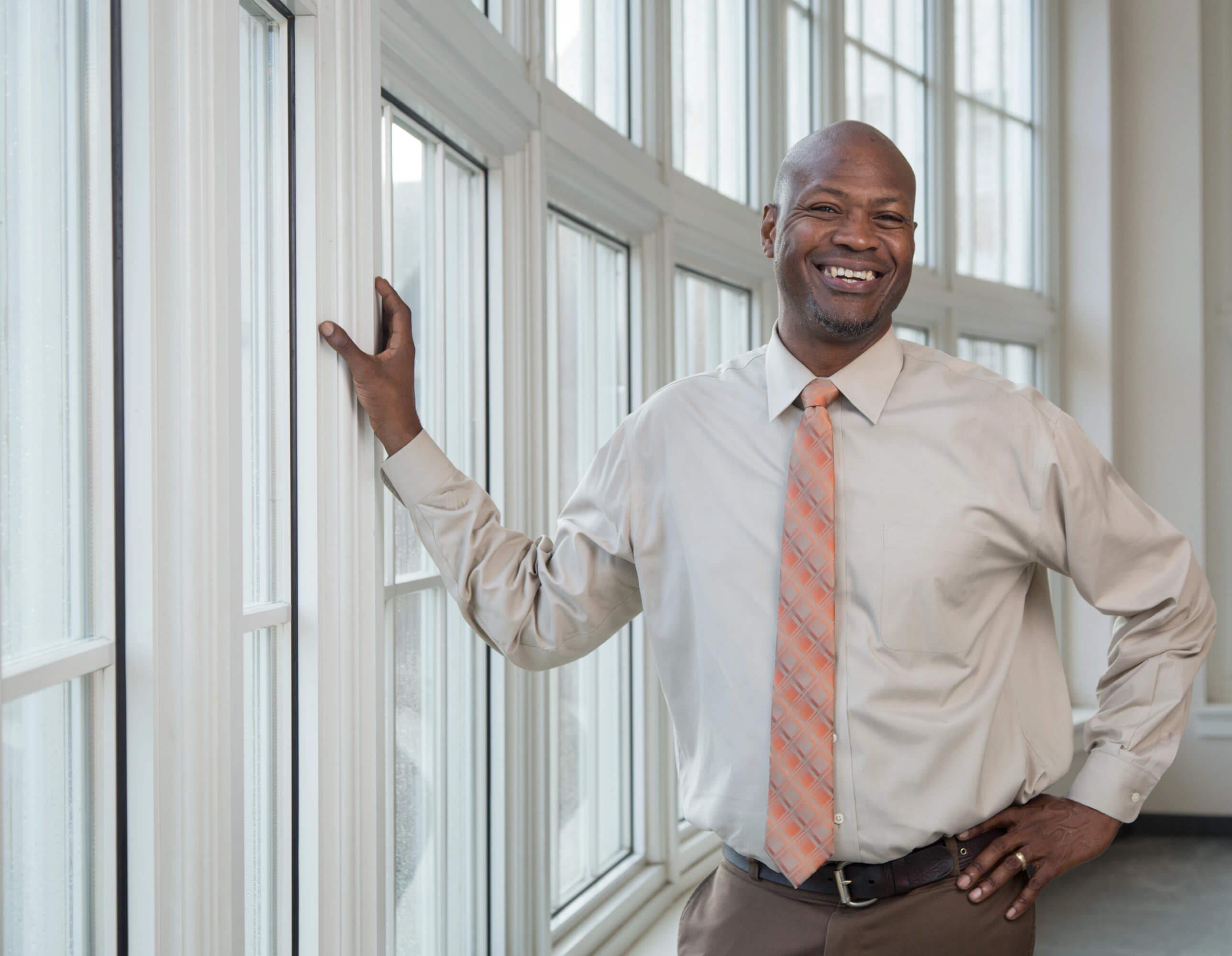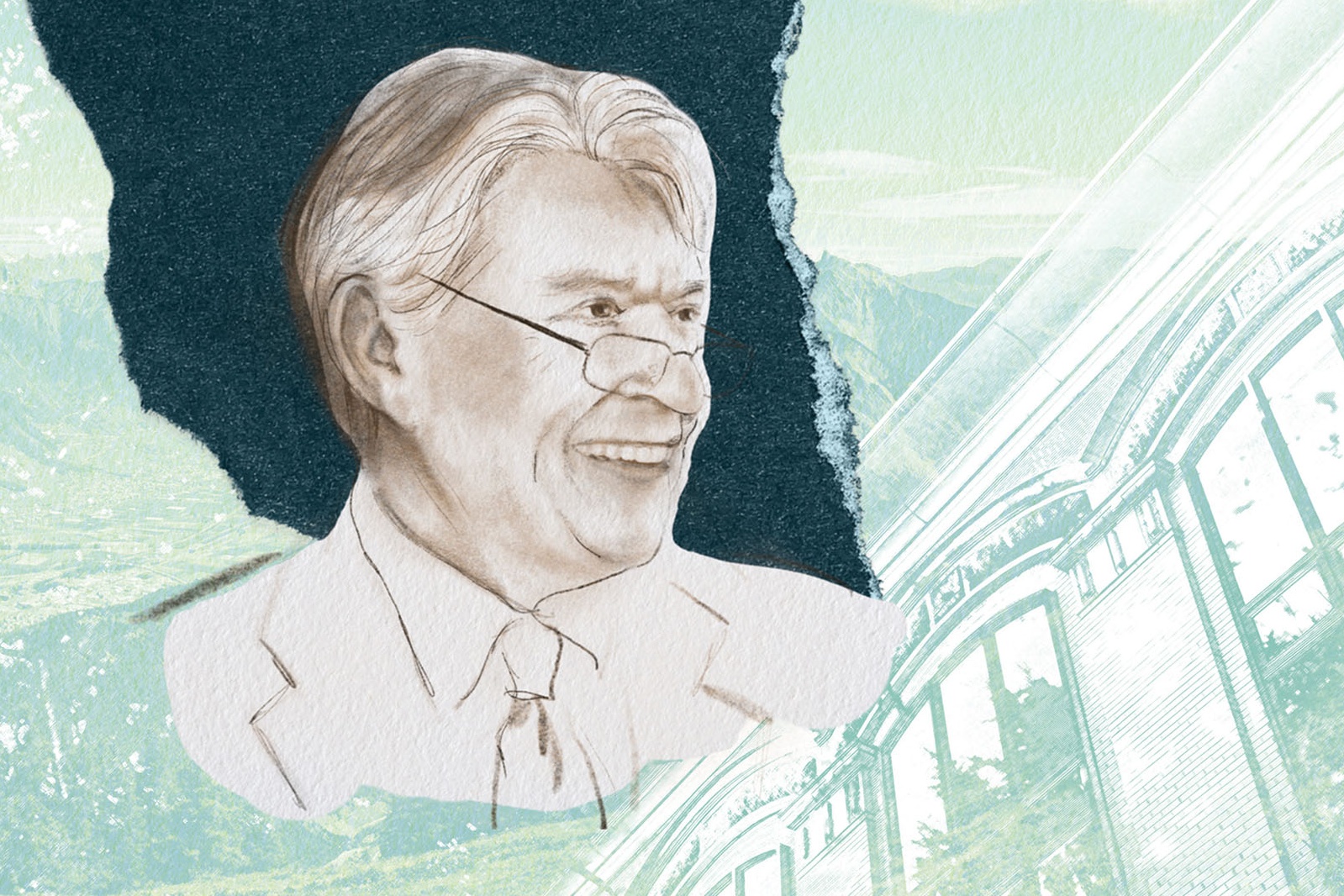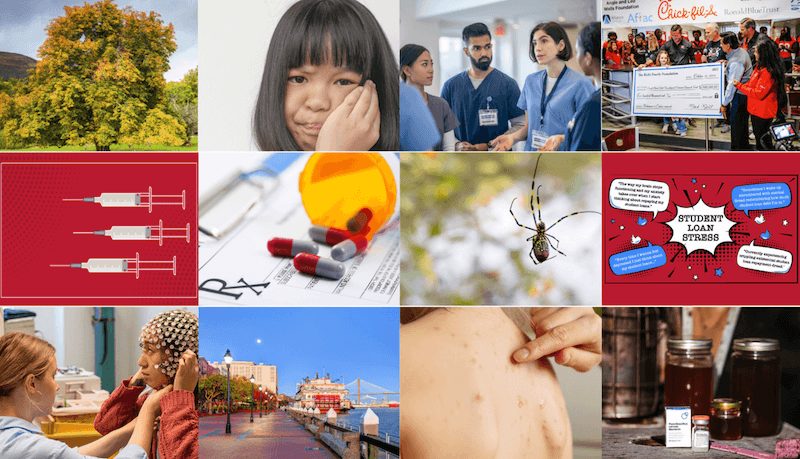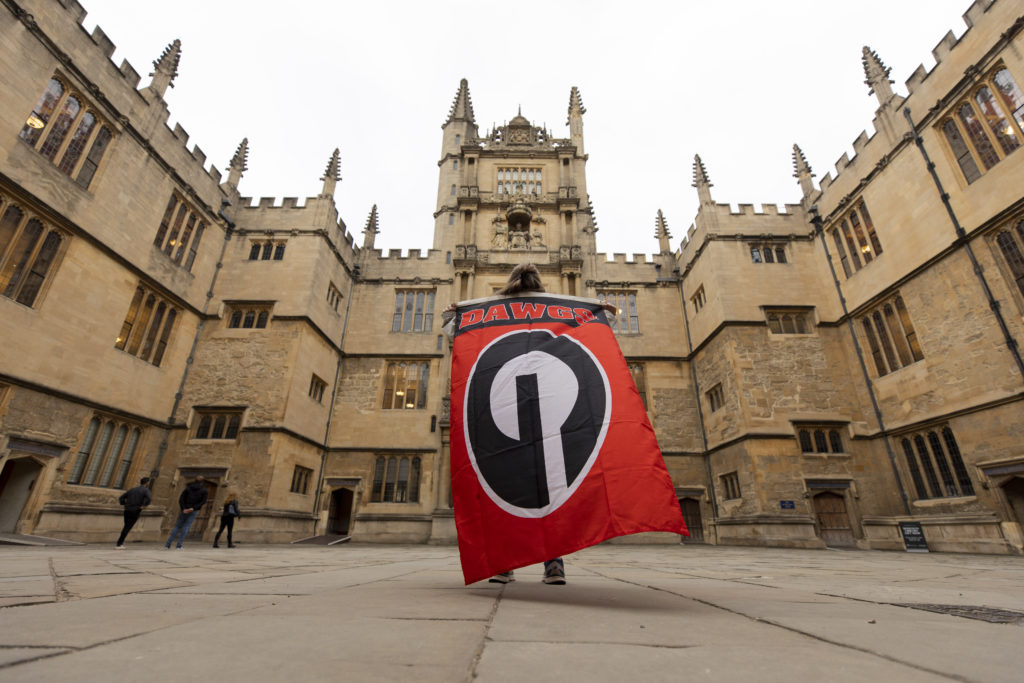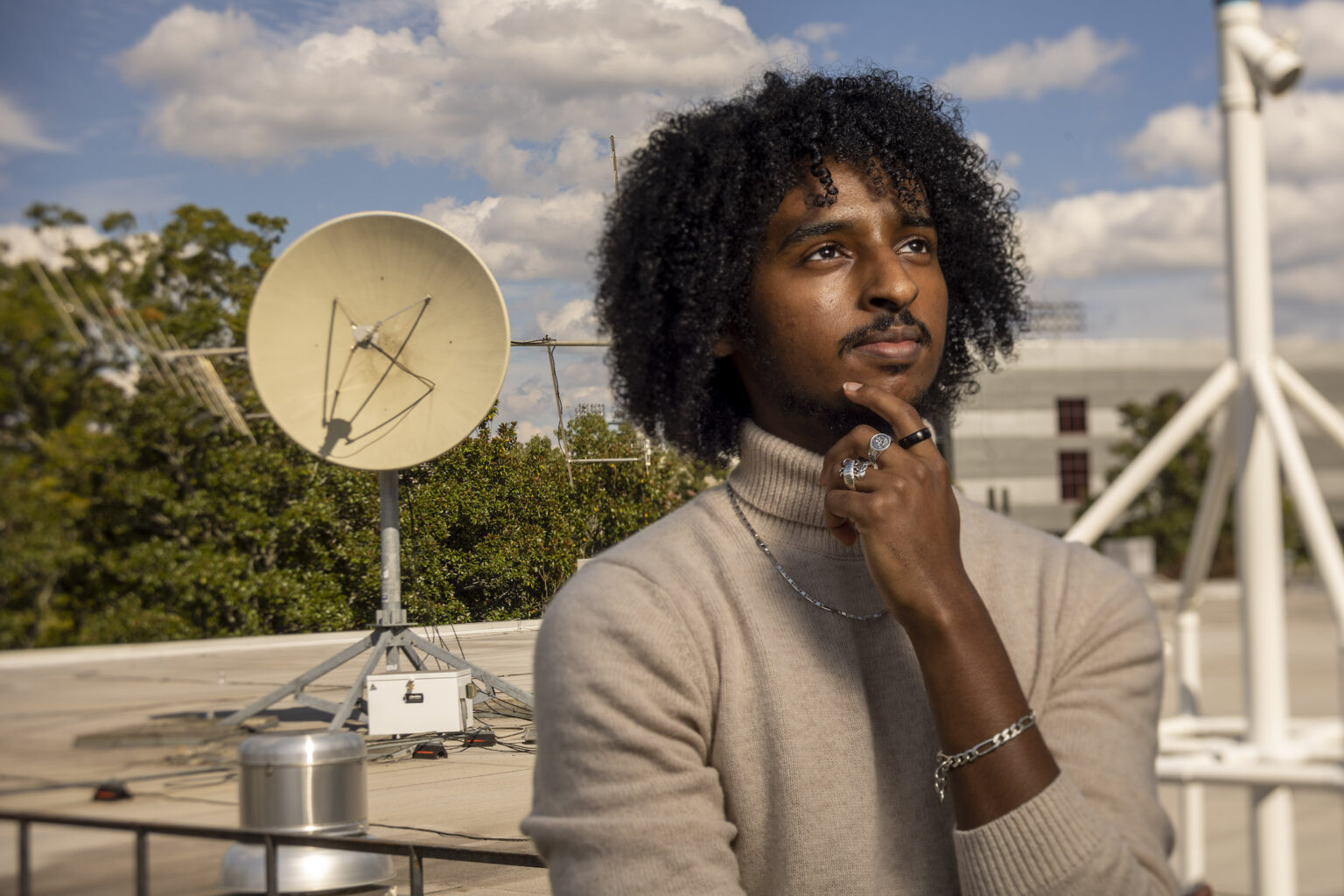In agricultural circles, it seems few topics can ruffle more feathers or start more shouting matches than talk of genetically modified organisms (GMOs) or animal rights. These are just the types of discussion topics Professor Dennis Duncan, in the Department of Agricultural Leadership, Education, and Communication (ALEC), encourages in his Global Seminar in Agricultural Leadership course each spring.
The course brings together agriculture students from across the United States and around the world through a teleconferencing system. It provides a space for people from different cultures to come together and discuss some of the most heated topics facing the agriculture today. Students have a chance to listen to other viewpoints and learn how to articulate the way they feel about these issues.
Duncan’s main objective for the course is “that every student finishes the semester with a greater appreciation for others’ opinions, beliefs and feelings regarding controversial issues,” he said.
Currently, the seminar is a collaboration between seven schools: the University of Georgia’s Tifton and Athens campuses; Universität für Bodenkultur Wien (BOKU) in Vienna, Austria; Florida A&M University (FAMU); Virginia Tech; Auburn University; École Nationale de Formation Agronomique in Toulouse, France; and Institut Polytechnique LaSalle in Beauvais, France.
The class meets in person once a week for videoconferences, and has a remote follow-up discussion via students’ personal computers on the following Tuesday. Since its creation, different schools have participated in the discussion, but BOKU and FAMU have been involved since the beginning, in spring 2005.
Although it has been 10 years since Duncan started the class, the open dialogue it has created is more important than ever because of today’s heated rhetoric surrounding food systems. Duncan is always changing the curriculum, incorporating timely case studies and adding schools to keep the discussion interesting.
The goal of the course is to give students “a better understanding of how science, culture, research and one's personal beliefs impact the way they perceive how food is produced, marketed and consumed,” Duncan said.
On March 19, the topic was the science, government regulation and public attitudes toward genetically modified crops. Each school gave a presentation on their country’s views on GMOs, followed by an open discussion during which students asked each other questions. The difference between American and European perspectives quickly became apparent.
“A question (to) our American friends: It seems like you totally accept GMO products. Are consumers interested in labeling? Maybe you’re not aware of negative issues, I’m not sure what kind of information you’re getting from Monsanto,” quipped a student from BOKU.
“Can we feed the world without developing new technology?” one of the UGA students asked in return.
ALEC master’s degree student Ariel Waldeck loves the class because it allows students to interact with their counterparts around the world. “The discussion is valuable because we are able to see how opinions vary often just based on where people are from,” said Waldeck.
The discussions are not only beneficial for UGA students; the European partners have gained a lot from learning about the American point of view towards food.
When universities from around the world come together to examine issues in the agricultural sector, it increases the flow of ideas and helps bridge gaps in understanding, Duncan said. His course offers a space for those ideas to flow, and for new ones to emerge.
“(Each institution has gained) a greater appreciation for other’s opinions, beliefs and feelings regarding controversial issues,” Duncan said.
It’s important to look at different points of view so that global agricultural issues can be addressed together in order to learn how to better inform the public and solve big problems, said Hugo Moran, ALEC master’s degree student, who participated in the recent discussion about GMOs.
This course is a great example of everything technology has to offer the classroom, Duncan said. His seminar uses a “flipped classroom” model, incorporating tools like videoconferencing, eLC live chat sessions and online surveys.
The course, ALDR4600/6600: The Global Seminar, is offered through the college every spring.
Duncan is a professor in the UGA College of Agricultural and Environmental Sciences. Duncan has a doctorate in agricultural and extension education, and his research focus is in the planning and evaluation of educational programs nationally and internationally.

